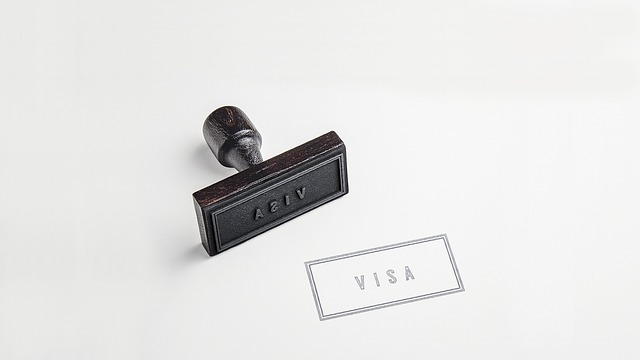Pet policies and permit requirements for renters relocating internationally
Renting abroad with a pet requires early planning: landlords’ pet policies, local permits, quarantine rules and the practicalities of housing choices all affect where you can live. This article outlines common rental restrictions, documentation needs, neighborhood considerations and steps for expats to prepare before relocating with an animal.

Moving internationally with a pet means juggling landlord rules, immigration paperwork and everyday logistics like utilities and commute. Renters should research housing options and lease clauses that reference pets, deposits and inspections before signing. Understanding local legal permit requirements and health regulations helps avoid fines or quarantines, while planning for furnishing, broadband access and neighborhood walkability improves daily life for both owner and animal.
What are common rental pet policies in Dubai rental agreements?
Landlords typically address pets directly in tenancy contracts. Some buildings allow pets with explicit permission, while others restrict animals by type, size or number. Standard clauses may require an additional refundable pet deposit, specify responsible behavior (noise, waste removal), and outline inspection procedures for damage at move-out. Furnished units may be subject to stricter rules due to concerns about fur, scratches or odors.
Before signing a leasing agreement, request written confirmation of any verbal approvals related to pets. Ask about routine inspection schedules and any maintenance expectations tied to pet ownership, such as professional cleaning fees. Knowing these terms helps avoid disputes over the deposit and ensures you understand how maintenance responsibilities are divided between tenant and landlord.
How do pet policies affect expat renters?
Expat renters should factor pet regulations into relocation plans early. Visa and residency timelines can influence when you can import an animal, and landlords may require proof of vaccination or microchipping as part of tenant screening. Some expat communities and coliving setups cater specifically to renters with pets; others may have strict no-pet rules. Communicating with letting agents who serve the expat market can clarify which neighborhoods are more pet-friendly.
Consider how commute and lifestyle changes will affect your pet. Longer commutes can reduce time available for walks or play, making walkability and access to nearby green spaces important when choosing a neighborhood. If moving into a high-rise, check building rules for elevator etiquette and designated pet relief areas.
What should renters check about neighborhood, walkability and commute?
When selecting housing, evaluate the neighborhood for pet-friendly amenities and practical commute considerations. Look for nearby parks, veterinary clinics and grooming services, and check whether sidewalks and pedestrian routes are safe. Broadband reliability matters for remote work days when you may need to monitor your pet; utilities continuity can also influence comfort if your animal is sensitive to temperature changes.
A quick test is to visit the area during typical commute times to observe traffic and noise levels. If you rely on public transport, confirm pet policies on trains or buses. These local service and infrastructure factors will affect daily routines and long-term satisfaction with your chosen rental.
How do deposits, inspections and maintenance relate to pets?
Pet ownership commonly influences deposit amounts and inspection expectations. Landlords may request a larger security deposit or a separate pet deposit to cover potential damage. Move-in and move-out inspections should be documented with photos and signed checklists to protect both parties. Routine maintenance responsibilities—such as cleaning carpets or repairing scratches—are often allocated in the lease and can be negotiated beforehand.
If damage occurs, prompt reporting and arranging repairs can limit disputes. Keep receipts for professional cleaning or repairs you commission; these can be used to offset potential deductions from the deposit. Understanding the inspection process reduces surprises when tenancy ends.
How do furnishing, coliving options and utilities affect pet living?
Furnished apartments can simplify relocation but may impose stricter pet rules. Verify whether furnishings are covered under the landlord’s insurance and what stains or damage are considered acceptable. Coliving spaces sometimes offer shared common areas that are pet-restricted, so read house rules carefully. Utilities and broadband are also part of a comfortable pet lifestyle: stable electricity for climate control, and reliable broadband if you use cameras or pet-monitoring services.
If a furnished unit is the only practical option, consider adding protective covers and choosing pet-friendly cleaners. When joining a coliving arrangement, discuss communal expectations and whether pet-related charges or schedules apply.
What legal permits, vaccinations and import rules apply to international pet relocation?
International pet relocation typically requires documentation beyond the lease. Most countries require an up-to-date vaccination record (including rabies), microchip information, and a veterinary health certificate issued shortly before travel. Some destinations impose quarantine periods or additional testing; others grant permits only after inspection by local authorities. Researching the destination country’s import rules and starting paperwork well in advance reduces the risk of shipment delays or emergency boarding costs.
Local legal requirements can also include licensing or registration once the pet arrives. Keep copies of all import permits, vaccination records and microchip registrations available for landlords who request them. Consulting a veterinarian experienced in international travel and a reputable pet relocation service can simplify complex permit timelines.
Conclusion Relocating internationally with a pet requires coordination across rental agreements, local legal requirements and everyday living needs. Review lease terms for pet clauses, prepare documentation for permits and health checks, and evaluate neighborhoods for walkability, utilities and services. Clear communication with landlords and thorough inspection records help protect deposits and reduce disputes, while planning for furnishing and maintenance ensures a smoother transition for both renter and pet.






